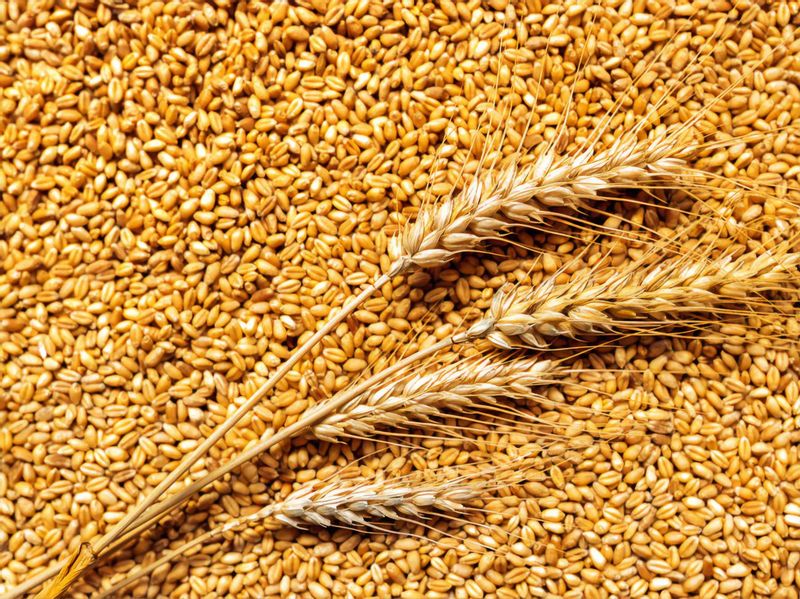Pakistan allows first shipment of Indian wheat to Afghanistan

A shipment of humanitarian food aid from India has been allowed to cross the land border into Pakistan on its way to Afghanistan, a rare gesture between the two countries that suspended transit trade three years ago over heightened tensions.
India’s Foreign Secretary Harsh Shringla and Farid Mamundzay, Afghanistan’s ambassador to India, saw off the first 50 trucks of a 50,000 metric tonnes shipment of wheat from the Indian border post of Attari, about 420km (260 miles) east of the Indian capital New Delhi, on the country’s western border with Pakistan on Tuesday.
“Truly an honour to witness the flagging off ceremony of India’s wheat assistance shipment to Afghanistan at Attari today,” said Mamundzay.
The trucks crossed over at Pakistan’s Wagah border post and will continue to the northwestern border crossing of Torkham into Afghanistan, officials say.
A Pakistani commerce ministry official confirmed the development on Tuesday, with a World Food Programme (WFP) representative saying the food aid would be distributed by the United Nations agency.
The Pakistani official spoke on condition of anonymity because he was not authorised to speak to the media on the subject.
Afghanistan, Pakistan’s northwestern neighbour, has suffered an almost complete collapse of its economy since the takeover of its government by the Taliban armed group, which waged a 20-year war against US and Afghan forces for control of the country since 2001.
The Taliban’s takeover of Kabul saw many countries freeze foreign assistance to the Afghan government, which had propped up the country’s economy since the US invasion in 2001.
On February 11, US President Joe Biden moved to seize $3.5bn in frozen Afghan central bank assets and reallocate them to address ongoing litigation by US victims of attacks by armed groups. The remaining $3.5bn of central bank funds will be used to address the humanitarian crisis in Afghanistan through a third-party trust, the White House says.
In January, the UN put out an appeal for $4.4bn to address immediate food, health and other needs in Afghanistan.
“This is a stopgap, an absolutely essential stopgap measure that we are putting in front of the international community today,” said UN Emergency Relief Coordinator Martin Griffiths at the time.
“Without this being funded, there won’t be a future, we need this to be done, otherwise there will be outflow, there will be suffering.”
According to the WFP, 8.7 million Afghans face “emergency-level food insecurity”, and more than half of the country faces acute food shortage.
Read also
Bunge and Viterra merge into a single entity under the Bunge brand
Global Trade in Focus: What’s Ahead for Grains & Oils in 2025/26?
Foot-and-mouth disease outbreak in Turkey: livestock markets closed across the cou...
Poland blocks wide-gauge railway to Baltic ports because it fears competition with...
Jawahir durum wheat becomes Morocco’s new hope
Write to us
Our manager will contact you soon



